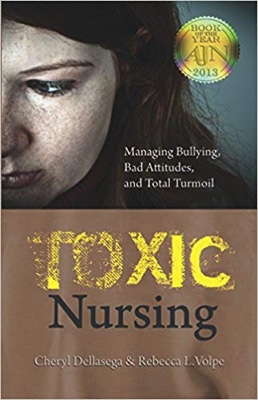Nurse Practitioner / Educator / Author / Speaker / Relational Aggression Expert


What Is Relational Aggression?
Relational aggression (RA) seems to be “news” these days. Despite an incredible awareness-raising through books and movies over the last two years, it’s not unusual for a reporter, a parent, or a teacher to ask me, “So what is relational aggression?
The definitions vary from source to source, but my answer is pretty standard: “It’s the use of behaviors, rather than fists, to deeply hurt another.” Each time I speak to a group of girls I learn new ways that RA occurs: on websites, through text messaging, via “hate contracts”—the list goes on and on. At the heart of each situation is wounded girls: the bully or aggressor, the bystander or witness, and the victim. Each, in their own way, suffers from the fallout of RA.
Of course RA has “been around” forever (think about Sarah and Hagar in the Bible) and yes, boys are involved in RA (sometimes with other boys, and sometimes with girls), but girls (and women) are more prone to the dynamic, in my opinion. More and more, I’m convinced that some of our instinctual biological drives to “protect our


own” and a media and culture that encourage female to female competition is fueling the fire of “women wars.” Men may go to battle with mortar and guns, but women young and old have their own arsenal of destruction.
Book Feature
Twice as many nurses as other working Americans have experienced bullying in the workplace. Toxic Nursing, written by Cheryl Dellasega and Rebecca Volpe used vignettes to ask expert nurse managers how they would address issues related to bullying and relational aggression. The results offer individual nurses, nurse managers and administrators the tools they need to defuse conflict and create a positive work environment.

The “whys” of RA are less clear to me than the outcomes. Too many girls grow into women who can’t interact with her peers in a positive and healthy way, whether she’s the target of aggression or the instigator. Studies are finding links between RA and eating disorders, depression, somatic symptoms, teen pregnancy, and even suicide. Clearly, it impacts profoundly on the lives of females.
The good news is that behaviors can change. Girls and women can learn a better way to interact with each other, and even the most hardcore “bully” can change her relationship style. I’ve seen it happen many times.
After one talk I gave to a large audience of mostly women, one attendee came up to me, her expression distraught. “You were talking about me,” she said. “I was the classic bully in high school, and now I realize how many girls I hurt. I wish I could call each one and apologize.”
Awareness—it’s the first step to changing behavior. As women across the country learn how damaging something as trivial as gossip can be, there is a mindshift in attitudes and beliefs. The next important step is having a process in place for “walking the talk” of ending the destructiveness of RA in our lives. For girls, my Club and Camp Ophelia programs help guide this transformation. Hopefully, my books, talks, and workshops point others in the right direction.
If you grew up in the era of Romper Room like I did, you remember the “do be’s” and the “don’t be’s.” It’s time for women of all ages to revisit the should’s and should not’s of their lives, and to make a decision to help, rather than hurt, their sisters.
I hope you will not only make that decision, but will spread the word to others: don’t be a mean bee.


Helping Women Turn Conflict into Connection
